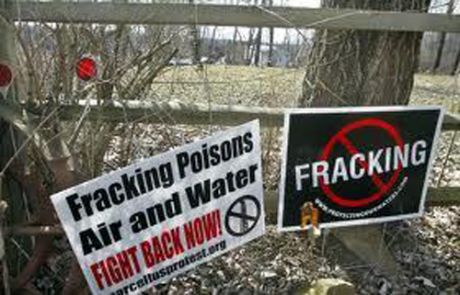News
You are here
BC’s 'balanced budget' built on shaking ground

February 25, 2013
It appears that the British Columbia Liberals led by Premier Christy Clark are hoping they can turn BC into the liquefied natural gas equivalent of Alberta and its tar sands. After canceling autumn 2012’s sitting, the Liberals returned to the legislature and presented a “balanced” budget built on revenues from BC’s potential liquefied natural gas (LNG) industry.
The Liberals have estimated that the planned five new liquefied natural gas plants will garner revenues for the province of between $130 billion and $260 billion over the coming 30 years. Out of these revenues they are planning to establish – at least in name – a BC Prosperity Fund along the lines of Norway’s oil fund nest egg into which profits from the petroleum industry are deposited, and Alberta’s Heritage Fund. Plans for BC’s Prosperity Fund include paying down government debt or eliminating the provincial sales tax. Money entering the fund would come partly from royalties collected on natural gas used for LNG, and corporate income taxes from the LNG industry.
Greenwashing "natural gas"
Proponents claim that burning natural gas is a greener option than coal or oil because its greenhouse gas (GHG) emissions are lower. But natural gas comes from the destructive and dangerous process of fracking, whose total GHGs rival those of coal and oil. There's nothing "natural" about imposing, on First Nations land without consultation, wells that inject massive amounts of water and chemicals under ground to release gas--polluting the water and the air. According to Arnold Clifton, Chief Councillor of the Gitga'at First Nation, "The prevailing winds bring pollutants from Kitimat down the Douglas Channel into our territory. We are concerned that our people will suffer if these plants are allowed to burn natural gas to power the liquefaction process...We are also concerned about climate change and how the BC government’s promise to reduce greenhouse gas emissions will be affected by these projects.”
Last December, the Liberals agreed to a moratorium on fracking in the Sacred Headwaters on Tahltan Nation traditional territories, but have now revealed that fracking is central to their economic plan, which is polluting their environmental policies. The Clean Energy Act requires at least 93 per cent of BC’s electricity “from clean or renewable resources and to build the infrastructure necessary to transmit that electricity” from “clean or renewable resources” like “biomass, biogas, geothermal, heat, hydro, solar, ocean, wind or any other prescribed resource.” Last June the premier announced that the Liberals will change the legal status of natural gas in LNG industry development so that it is included under the Clean Energy Act. This will conveniently keep GHGs from fracking and LNG transport unaccounted for and technically not in conflict with either the Clean Energy Act or the government’s own programme for reducing GHGs.
A Sierra Club of BC press release criticized the provincial budget for what it excluded, noting that there is no mention of global warming or the environment. “The Christy Clark government has chosen to invest heavily in questionable assumptions about the Liquefied Natural Gas (LNG) industry, which rely on imaginary revenues and ignore the dramatic increase in BC’s greenhouse gas emissions that would result,” said Sarah Cox, Acting Executive Director of Sierra Club BC. “At the same time, the government is cutting funding for the Climate Action Secretariat, which is responsible for meeting BC’s legislated greenhouse gas emission reduction targets."
In the budget are spending cuts to the departments regulating the oil, gas and mining industries. Also, the government has frozen the budget of the Environmental Assessment Office while promising further mining and gas exploration throughout the province. It seems clear the direction in which the BC Liberals plan to steer energy development.
Where the 2013 budget should have contained the creation of climate-related and green jobs, it instead contained announcements jobs created in an industry which has the potential to pollute air and groundwater, use vast amounts of hydroelectricity, as well as cause earthquakes (a link found by BC’s own Oil and Gas Commission). There is growing solidarity against fracking: a petition launched by the 800 member Fort Nelson First Nation to defend their water from fracking has garnered 28,000 signatures. The upcoming provincial election provides an opportunity to challenge the government's fracking economic plan, as part of a broader fight for sustainable alternatives to the present fossil-fuel system.
Section:










